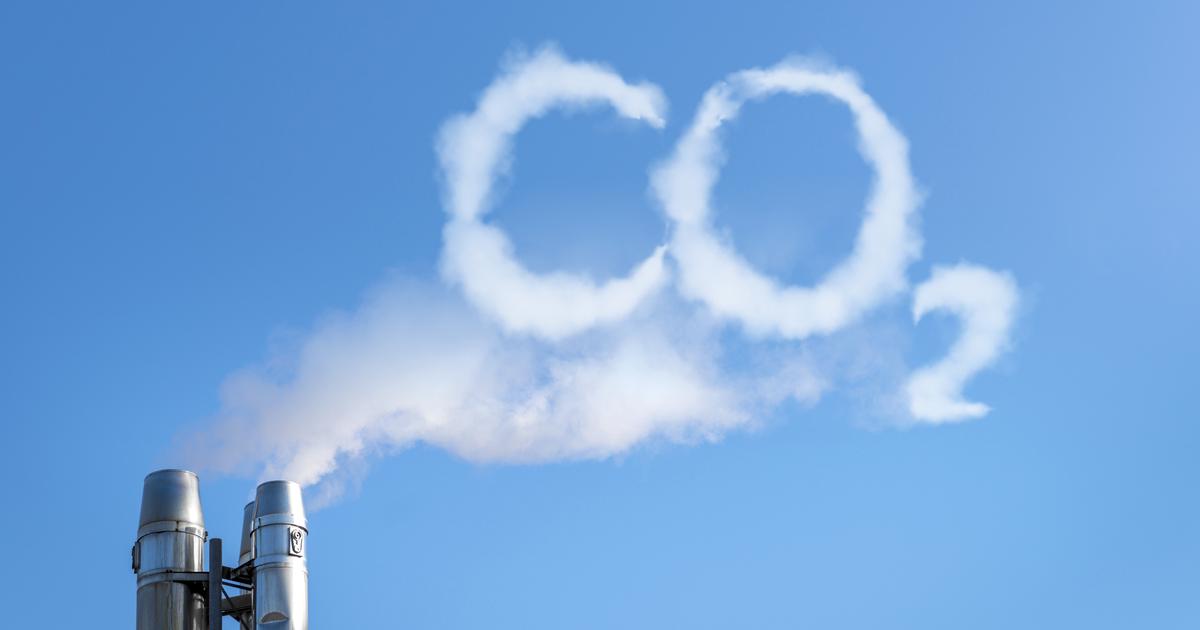A shallow do not do the spring. This expression takes on its full meaning as the confinement of human activities linked to the Covid-19 pandemic has just given the planet a breath of fresh air like it had not known in years. Admittedly, the drastic reduction over several months of car traffic, production of fossil fuels and industrial activities had a direct impact on greenhouse gas emissions, as shown by the latest study published in the British journal Nature Climate Change. But climatologists have no illusions: this occasional upturn will only be short-lived and will ultimately have had little impact on climate change.
The study authors studied the evolution of carbon dioxide emissions every day and in each country between January and April. Globally, it shows that daily emissions decreased by 17% (or 17 million tonnes of CO2) during the peak of confinement (April 7). Emissions from (land) transport account for almost half of this decrease (43%), while electricity production represented 19%, industry 25% and aviation 10%.
Extreme “probably temporary” reductions
In France, the maximum drop in emissions reached 34% on March 20 and remained at this level until the end of April. A figure to compare with the 27% reduction in emissions on a European scale, 23.9% in China and 31.6% in the United States. But the authors of the study qualify these "spectacular figures". "Reducing emissions this year will not have much of an effect on climate change," they say. It remains extremely low compared to the accumulated emissions and compared to the reduction efforts necessary ”.
"Containment has led to drastic changes in the use of energy, but above all has led people to move less, which has had half the impact on CO2 emissions", underlines Corinne Le Quéré, professor of the science of change and lead author of this study. Joined this Tuesday, May 19 in the UK, she believes that "these extreme reductions are probably temporary, as they do not reflect structural changes in economic systems, transport or energy." Rob Jackson, co-author of the study and professor at Stanford University in the United States, abounds: “The fall in emissions is substantial, but illustrates the challenge of meeting our commitments under the Paris Agreement. We need systemic change, made possible by green energy and electric cars, not temporary reductions due to imposed behaviors. ”
"We need more carbon neutral investments"
"For now, governments are focusing on short-term economic rescue plans, but to be more resilient in the face of the climate crisis in the future, ambitious stimulus plans are needed, which focus on the most carbon neutral investments possible, insists Corinne Le Quéré. Only the way that leaders take the fight against climate change into account in their economic responses to this health crisis will influence the global trajectories of CO2 emissions for the decades to come. ”
At the time of taking stock of this confinement, if the emissions of CO2 into the atmosphere have dropped in the last two months, it also appears that we have all breathed healthier air. According to the National Institute for Environment and Risks (Ineris), the period of confinement (from March 17 to May 10) resulted in France in an average decrease in nitrogen dioxide (NO2) concentrations by around 49%. "From May 11, the date of the end of the deconfinement, the two curves meet again, showing the immediate impact, on the NO2 levels, of the resumption of activities", underlines Ineris. As for fine particles, this organization noted a drop in average levels of around ten percent.








